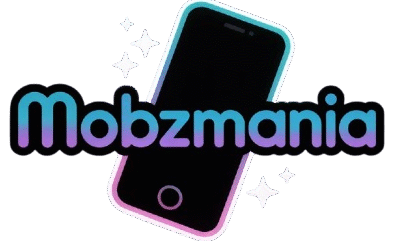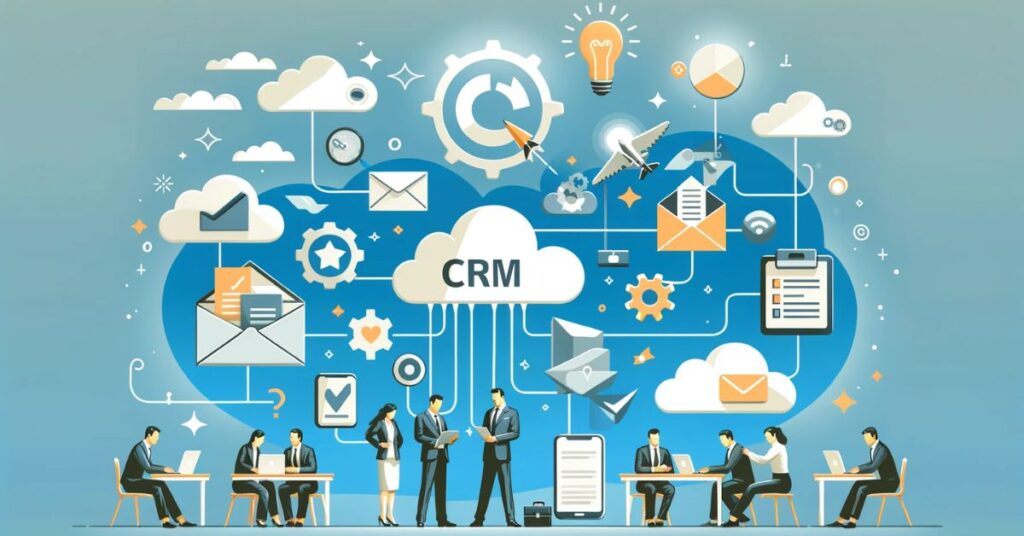In the world of modern business, customer relationships are everything. Companies across the United States depend on CRM (Customer Relationship Management) software to keep track of leads, nurture relationships, and close more sales. The right CRM doesn’t just organize customer data—it gives teams real-time insights, automation, and better collaboration tools. In this guide, we’ll explore the Top 10: CRM Platforms that are helping American businesses grow faster in 2025. Each platform is evaluated for its usability, features, pricing, and scalability so you can choose the best one for your business.
10. Monday.com
Monday.com has evolved from a simple work management system into a dynamic CRM platform trusted by startups and creative teams. What sets it apart is its visual dashboard where every sales stage is clearly mapped out. You can track your leads, customer interactions, and project timelines in one place. Many U.S. startups prefer Monday.com because it feels less like a traditional CRM and more like a flexible workspace. It also integrates smoothly with tools like Gmail, Slack, and Microsoft Teams.
| Feature | Description |
| Dashboard | Visual and customizable for sales and marketing teams |
| Automation | Automates repetitive follow-up tasks |
| Integrations | Gmail, Outlook, Slack, Microsoft Teams |
| Ideal Users | Startups, creative agencies, marketing teams |
A small creative agency in California reported that using Monday.com helped them cut manual tasks by 40%. The platform’s colorful layout and automation tools bring energy and efficiency to daily workflows.
9. Nimble
Nimble is one of the most intuitive CRM platforms available for small businesses in the USA. It’s designed to help professionals manage relationships across social networks and email channels. Its real power lies in its social media integration. Nimble automatically gathers contact details, company insights, and social profiles, creating a unified contact record.
Nimble is often called the “relationship CRM” because it helps sales teams stay connected in a human way. It works directly inside Gmail and Microsoft 365, so users don’t need to switch between apps. A growing number of U.S. freelancers and consultants use it because it’s affordable and perfect for managing personal business connections.
| Strength | Details |
| Social Integration | Links with LinkedIn, Twitter, Facebook |
| Smart Contact Insights | Automatically updates contact profiles |
| Best For | Freelancers, consultants, small marketing teams |
8. Insightly
When it comes to combining project management with CRM capabilities, Insightly stands out. It’s popular among mid-sized U.S. companies that handle long-term projects. Insightly doesn’t just track sales—it helps manage tasks, emails, and timelines under one platform. This makes it perfect for businesses that value structure and organization.
A unique feature of Insightly is its advanced analytics. It offers customizable dashboards that help track customer behavior and predict sales outcomes. U.S. companies using Insightly often praise its integration with Google Workspace and Mailchimp, making marketing automation much simpler.
| Aspect | Key Benefit |
| CRM + Project Management | Unified platform for sales and delivery |
| Analytics | Custom dashboards for data-driven decisions |
| Integrations | Google Workspace, Mailchimp, QuickBooks |
7. Freshsales (by Freshworks)
Freshsales (by Freshworks) stands out among CRM platforms by offering an impressive combination of ease of use and advanced functionality. Powered by Freddy AI, an intelligent assistant that predicts customer behavior, scores leads, and automates routine tasks, Freshsales ranks as one of the most AI-driven CRM platforms for U.S. startups in 2025. Designed to help teams convert leads faster, it includes email tracking, call logging, and deal management features built for agility. American businesses also value its affordable pricing, making this CRM platform accessible even for small teams, while its analytics dashboards provide managers with clear performance insights without requiring technical expertise.
| Feature | Description |
| AI Assistant | Freddy AI predicts customer needs |
| Lead Scoring | Helps prioritize high-value leads |
| Target Users | Startups, small sales teams |
6. SugarCRM
For companies that want complete control and data transparency, SugarCRM is a powerful option. It’s known for its predictive analytics, advanced reporting, and strong automation features. U.S. enterprises that handle large customer databases often prefer SugarCRM because it allows full customization at every level. Unlike some CRMs that limit flexibility, SugarCRM lets users adapt workflows to specific industry needs.
The platform also excels in data visualization and customer journey mapping, which allows managers to see every stage of interaction in one timeline. SugarCRM is a top choice for industries like finance, manufacturing, and healthcare where precision and compliance matter.
| Category | Benefit |
| Customization | Highly configurable workflows |
| Predictive Analytics | Forecasts trends and behaviors |
| Best For | Large enterprises, data-driven organizations |
5. Pipedrive
Pipedrive is one of the most sales-focused CRM platforms in the market. Its intuitive pipeline view makes tracking deals straightforward. Sales teams in the U.S. love how Pipedrive simplifies lead management with automation tools that handle follow-ups and reminders. The built-in AI sales assistant provides insights to improve performance and shorten the sales cycle.
A case study from a Chicago-based retail firm showed that Pipedrive helped increase their close rate by 22% within three months. The company credited the software’s clear visualization and automated tracking for keeping their team organized and motivated.
| Metric | Impact |
| Sales Cycle | Reduced by 22% on average |
| Automation | Handles repetitive tasks automatically |
| Ideal For | Small to medium U.S. businesses |
4. Zoho CRM
Zoho CRM is known as a complete all-in-one business platform. It’s especially popular among U.S. SMBs because of its affordability and range of features. Users get access to workflow automation, lead scoring, AI insights, and real-time notifications. The platform integrates easily with over 500 third-party tools, including social networks and communication apps.
Zoho’s mobile app is another highlight, enabling sales professionals to manage deals on the go. Businesses love the fact that Zoho CRM scales easily, from a few users to hundreds, without losing speed or simplicity.
| Feature | Description |
| Mobile CRM | Full-featured mobile application |
| Integrations | 500+ tools supported |
| Ideal Audience | SMBs, remote teams |
3. Creation
Creation (known as Creatio) brings together process automation and CRM capabilities in one intelligent ecosystem. It’s built for organizations that value structure, scalability, and automation. What makes Creation unique is its low-code customization system, which lets users modify workflows without deep coding knowledge.
Many U.S. enterprises use Creation to automate their marketing and sales processes. Its strength lies in managing customer data across departments, helping teams collaborate more effectively. For industries like finance and manufacturing, this means faster lead conversions and smoother customer journeys.
| Element | Advantage |
| Low-Code Platform | Easy workflow customization |
| Marketing Automation | Unified campaigns across channels |
| Ideal Users | Large corporations, enterprise users |
2. HubSpot CRM
HubSpot CRM remains one of the most popular choices in the United States because it combines simplicity, power, and a free entry plan. Businesses love its marketing automation, contact management, and email tools. What makes HubSpot CRM stand out is how it integrates seamlessly with HubSpot’s entire ecosystem of marketing, sales, and service tools.
A small business in Texas shared that using HubSpot CRM helped them increase customer retention by 30% within six months. This was achieved through automated email workflows and detailed customer analytics. The best part is that HubSpot grows with your company, offering paid tiers when you’re ready for advanced features.
| Plan Type | Key Features |
| Free | Contact management, email tracking |
| Professional | Automation, analytics, integration suite |
| Enterprise | Advanced reporting, team collaboration |
1. Salesforce
At the top of the Top 10: CRM Platforms list is Salesforce, the world’s leading CRM platform. Salesforce has built its reputation on customization, scalability, and innovation. U.S. businesses—from startups to Fortune 500 companies—rely on Salesforce for its unmatched ecosystem of tools. The platform’s AI assistant, Einstein, provides predictive insights, helping teams forecast sales trends with remarkable accuracy.
What makes Salesforce exceptional is its ability to handle complex business operations through automation, analytics, and seamless integration with thousands of third-party apps. It supports every stage of customer management, from marketing to after-sales service.
| Edition | Price Range (USD) | Target Audience |
| Essentials | $25/user/month | Small Businesses |
| Professional | $80/user/month | Growing Teams |
| Enterprise | $165/user/month | Large Corporations |
As Marc Benioff, CEO of Salesforce, once said, “The business of business is improving the state of the world.” That spirit of innovation makes Salesforce not just a CRM, but a growth engine for every U.S. company that uses it.
May Aso Read: How to Make an App Full Guide for 2025
Conclusion
The Top 10: CRM Platforms featured here all bring something unique to the table. Whether it’s the creativity of Monday.com, the social power of Nimble, the structure of Insightly, or the intelligence of Salesforce, there’s a CRM platform for every type of business in the United States.
For small companies, HubSpot CRM and Zoho CRM provide affordable entry points. For large enterprises, Creation and SugarCRM offer scalability and automation at a deeper level. The key to choosing the best CRM platform is understanding your business goals, team size, and budget.
By adopting the right CRM, U.S. businesses can boost productivity, strengthen relationships, and drive long-term growth. Investing in a CRM isn’t just about technology—it’s about transforming how you connect with your customers, every single day.

Jake Miller is a mobile troubleshooting specialist with 7+ years of experience solving Android and app-related issues. He tests every fix on real devices to ensure accuracy and reliability. Jake creates simple, step-by-step guides to help users quickly resolve everyday smartphone problems.



